The Redeemer hh-6 Read online
Page 10
He could hear the music long before he was there.
A few hundred people had gathered in a semicircle in front of the musicians who were finishing a song as he arrived. A bell pealed during the applause and he knew he was on time. Inside the semicircle, on one side and in front of the band, a black cooking pot hung from three wooden sticks, and beside it the man in the photograph. In fact, street lamps and two torches were all the light they had, but there was no doubt. Especially as he was wearing the Salvation Army uniform coat and cap.
The vocalist shouted something into the microphone and people cheered and clapped. A flash went off as they started up again. Their playing was loud. The drummer raised his right hand high in the air every time he hit the snare drum.
He manoeuvred his way through the crowd until he was standing three metres from the Salvation Army man and checked his back was clear. In front of him stood two teenage girls exhaling white chewing-gum-breath into the freezing air. They were smaller than he was. He had no particular thoughts in his head, he didn't hurry, he did what he had come to do, without any ceremony: take out the gun and hold it with a straight arm. It reduced the distance to two metres. He took aim. The man by the cooking pot blurred into two. He relaxed and the two figures merged back into one.
'Skal,' Jon said.
The music oozed out of the speakers like viscous cake mixture.
'Skal,' said Thea, obediently lifting her glass to his.
After drinking, they gazed into each other's eyes and he mouthed the words: I love you.
She lowered her eyes with a blush, but smiled.
'I've got a little present for you,' he said.
'Oh?' The tone was playful, coquettish.
He put his hand in his jacket pocket. Beneath the mobile phone he could feel the hard plastic of the jeweller's box against his fingertips. His heart beat faster. Lord above, how he had looked forward to, yet dreaded, this evening, this moment.
The phone began to vibrate.
'Anything the matter?' Thea asked.
'No, I… sorry. I'll be back in a sec.'
In the toilet he took out the phone and read the display. He sighed and pressed the green button.
'Hi, sweetie. How's it going?'
The voice was jokey, as though she had just heard something funny which had made her think of him and then rung, on an impulse. But his log showed six unanswered calls.
'Hi, Ragnhild.'
'Weird sound. Are you-?'
'I'm in a toilet. At a restaurant. Thea and I are here for a meal. We'll have to talk another time.'
'When?'
'A… another time.'
Pause.
'Aha.'
'I should have called you, Ragnhild. There's something I have to tell you. I'm sure you know what.' He breathed in. 'You and I, we can't-'
'Jon, it's almost impossible to hear what you're saying.'
Jon doubted that was true.
'Can I see you tomorrow night at your place?' Ragnhild said. 'Then you can tell me?'
'I'm not free tomorrow night. Or any other-'
'Meet me at the Grand for lunch then. I can text you the room number.'
'Ragnhild, not-'
'I can't hear you. Call me tomorrow, Jon. Oh, no, I'm in meetings all day. I'll call you. Don't switch your mobile off. And have fun, sweetie.'
'Ragnhild?'
Jon read the display. She had rung off. He could go outside and ring back. Get it over with. Now that he had started. That would be the proper thing to do. The wise thing to do. Give it the coup de grace, kill it off.
They were standing opposite each other now, but the man in the Salvation Army didn't appear to see him. His breathing was calm, his finger on the trigger, then he slowly increased the pressure. And it flashed through his mind that the soldier showed no surprise, no shock, no terror. On the contrary, the light of understanding seemed to cross his face, as though the sight of the pistol gave him the answer to something he had been wondering about. Then there was a bang.
If the shot had coincided with the bang on the snare drum, the music might have drowned it, but, as it was, the explosion made many turn round and look at the man in the raincoat. At his gun. And they saw the Salvation Army soldier, who now had a hole in the peak right under the A of his cap, fall backwards as his arms swung forwards like a puppet's.
Harry jerked in his chair. He had fallen asleep. The room was still. What had woken him? He listened, but all he could hear was the low, reassuringly even rumble. No, there was another sound there, too. He strained to hear. There it was. The sound was almost inaudible, but now that he had identified it, it rose in magnitude and became clearer. It was a low ticking sound.
Harry remained in his chair with closed eyes.
Then a sudden fury surged through him, and without thinking, he had marched into the bedroom, opened the bedside-table drawer, snatched Moller's wristwatch, opened the window and hurled it into the dark with as much force as he could muster. He heard the watch hit first the wall of the adjacent block and then the icy tarmac in the street. He slammed the window shut, fastened the catches, went back to the sitting room and turned up the volume. So loud that the speaker membranes vibrated in front of his eyes, the treble was wonderfully bright in his ears and the bass filled his mouth.
The crowd had turned away from the band and looked at the man lying in the snow. His cap had rolled away and come to a halt in front of the singer's mike stand while the musicians, who still had not realised what had happened, continued to play.
The two girls standing closest to the man in the snow retreated. One of them started to scream.
The vocalist, who had been singing with her eyes shut, opened them and discovered she no longer had the audience's attention. She turned and caught sight of the man in the snow. Her eyes sought a guard, an organiser, a gig manager, anyone who could deal with the situation, but this was just an ordinary street concert. Everyone was waiting for everyone else and the musicians kept playing.
Then there was a movement in the crowd and people cleared a path for the woman elbowing her way through.
'Robert!'
The voice was rough and hoarse. She was pale and wore a thin, black leather jacket with holes in the sleeves. She staggered through to the lifeless body and fell on her knees beside him.
'Robert?'
She placed a skinny hand against his throat. Then she turned to the musicians.
'Stop playing, for Christ's sake.'
One after another, the members of the band stopped playing.
'The man's dying. Get hold of a doctor. Quick!'
She put her hand back on his neck. Still no pulse. She had experienced this many times before. Sometimes it was fine. As a rule it wasn't. She was confused. This couldn't be an overdose; a Salvation Army soldier wouldn't be on the needle, would he? It had started to snow and the snowflakes were melting on his cheeks, the closed eyes and the half-open mouth. He was a good-looking young man. And she thought now – with his face relaxed – he looked like her own boy when he was asleep. Then she discovered the single red stripe going down from the tiny black hole in his head, across the forehead and temple and into his ear.
A pair of arms grabbed her and lifted her away while someone else bent over the young man. She caught a last glimpse of his face, then the hole, and it occurred to her with a sudden painful certainty that this fate was awaiting her boy, too.
He walked at a fast pace. Not too fast; he wasn't fleeing. Looked at the backs in front of him, spotted someone hurrying and followed in his wake. No one had tried to stop him. Of course they hadn't. The report of a gun makes people stand back. The sight of it makes them run away. And in this case most had not even absorbed what was going on.
The final job.
He could hear the band was still playing.
It had started to snow. Great. That would make people look down to protect their eyes.
A few hundred metres down the street he saw the yellow station building. H
e experienced a feeling that he had from time to time, that everything was floating, that nothing could happen to him, that a Serbian T-55 tank was no more than a slow-moving iron monster, blind and deaf, and that his town would be standing when he returned home.
Someone was standing where he was going to drop the gun.
The clothes looked new and fashionable, apart from the blue trainers. But the face was lacerated and scorched, like a blacksmith's. And the man, or the boy, or whatever he was, looked as if he was there to stay. He had stuffed the whole of his right arm in the opening of the green litter bin.
Without slowing down, he checked his watch. Two minutes since he had fired the shot and eleven minutes to the departure of the train. And he still had the weapon on him. He walked past the bin and continued towards the restaurant.
A man came towards him, staring. But didn't turn after they had passed each other.
He headed for the restaurant door and pushed it open.
In the cloakroom area a mother was bent over a boy, fiddling with a zip on a jacket. Neither of them looked at him. The brown camelhair coat was hanging where it should. The suitcase underneath. He took both into the men's toilet, locked himself in one of the two cubicles, took off his raincoat, put the hat in the pocket and put on the camel-hair coat. Even though there were no windows, he could hear the sirens outside. Many sirens. He cast around him. Must get rid of the gun. There wasn't a great deal of choice. He stood on the toilet seat, stretched up to the white ventilation gap in the wall and tried to push the gun in there, but there was a grid inside.
He stepped back down. He was breathing hard now, and getting hot inside his shirt. Eight minutes to the train. He could take a later one, of course; that wasn't critical. What was critical was that five minutes had passed and he still hadn't got rid of the weapon, and she always said that anything over four minutes was an unacceptable risk.
Naturally, he could leave the gun on the floor, but they always worked to the principle that the gun should not be found before he was safe.
He left the cubicle and went to the sink. Washed his hands while his eyes scrutinised the deserted room. Upomoc! And stopped at the soap container over the sink.
Jon and Thea left the restaurant in Torggata with arms entwined.
Thea let out a scream as she slipped on the ice under the treacherous new snow in the pedestrian zone. She almost dragged Jon down with her, but he saved them at the last minute. Her bright laughter pealed in his ears.
'You said yes!' he shouted to the sky and felt the snowflakes melting on his face. 'You said yes!'
A siren rang out in the night. Several sirens. The sounds came from the direction of Karl Johans gate.
'Shall we go and see what the fuss is?' Jon asked, taking her hand.
'No, Jon,' said Thea, with a frown.
'Yes, come on, let's!'
Thea dug her feet into the ground, but the slippery soles couldn't find any purchase. 'No, Jon.'
But Jon just laughed and pulled her after him like a sledge.
'No, I said!'
The sound of her voice was enough to make Jon let go at once. He looked at her in surprise.
She sighed. 'I don't want to see a fire right now. I want to go to bed. With you.'
Jon studied her face. 'I am so happy, Thea. You have made me so happy.'
He couldn't hear what she replied. Her face was buried in his jacket.
Part Two
THE REDEEMER
9
Tuesday, 16 December. The Snow.
The snow falling on Egertorget was stained yellow by the floodlights of the Crime Scene Unit.
Harry and Halvorsen stood outside the bar 3 Brodre watching the spectators and the media pushing against the police barriers. Harry took the cigarette out of his mouth and gave a cough, throaty and moist. 'Lots of press,' he said.
'They were here in no time,' Halvorsen said. 'Only a stone's throw from their offices, of course.'
'Juicy number. Murder in the midst of the Christmas scramble in Norway's most famous street. A victim everyone has seen; the guy standing by the Salvation Army pot. While a well-known band is performing. What more can they ask for?'
'An interview with celebrity investigator Harry Hole?'
'We'll stay here for the moment,' Harry said. 'Have you got the time of the murder?'
'A bit after seven.'
Harry looked at his watch. 'That's almost an hour ago. Why didn't anyone ring me before?'
'Dunno. I got a call from the POB a little before half seven. I thought you would be here when I arrived…'
'So you rang me on your own initiative?'
'Well, you're, like, the inspector after all.'
'Like,' Harry mumbled, flicking the cigarette to the ground. It melted its way through the light covering of snow and vanished.
'All the evidence will soon be under half a metre of snow,' Halvorsen said. 'Typical.'
'There won't be any evidence,' Harry said.
Beate was walking towards them with snow in her blonde hair. Holding a small plastic bag between her fingers with an empty casing inside.
'Wrong,' Halvorsen said to Harry with a triumphant smile.
'Nine millimetre,' Beate said, grimacing. 'Most common ammo around. And that's all we've got.'
'Forget what you have or haven't got,' Harry said. 'What was your first impression? Don't think, speak.'
Beate smiled. She knew Harry now. First, intuition, then the facts. Because intuition provides facts too; it's all the information the crime scene gives you, but which the brain cannot articulate straight off.
'Not a great deal. Egertorget is the busiest square in Oslo. Hence we had an extremely contaminated scene even though we arrived twenty minutes after the man was killed. But it seems professional. The doctor is looking at the victim now – it looks like he was hit by one bullet. Right in the forehead. Pro. Yes, that's my instinct.'
'Working by instinct, are we, Inspector?'
All three turned round to the voice behind them. It was Gunnar Hagen. He was wearing a green military jacket and a black woollen cap. The smile was visible only at the corners of his mouth.
'We try anything that works, boss,' Harry said. 'What brings you here?'
'Isn't this where it happens?'
'In a way.'
'Bjarne Moller preferred the office, I gather. For myself, I am of the persuasion that a leader should be in the field. Was more than one shot fired? Halvorsen?'
Halvorsen flinched. 'Not according to the witnesses we've spoken to.'
Hagen stretched the fingers of his gloves. 'Description?'
'A man.' Halvorsen's eyes flitted between the POB and Harry. 'That's all we know so far. People were watching the band and the whole thing happened very quickly.'
Hagen sniffed. 'In a crowd like this someone must have got a good look at the gunman.'
'You would think so,' Halvorsen said. 'But we don't know for certain where the man was standing.'
'I see.' Again the tiny smile.
'He was standing in front of the victim,' Harry said. 'Distance of two metres, maximum.'
'Oh?' Hagen and the other two turned to Harry.
'Our gunman knew that if you want to kill someone with a smallcalibre weapon, you shoot him in the head,' Harry said. 'Since he fired only one shot, he was sure of the result. Ergo, he must have been standing so close that he could see the hole in the forehead so he knew he couldn't have failed. If you examine his clothes, you should be able to find a fine gunshot residue which will prove what I am saying. Maximum two metres.'
'One and a half,' Beate said. 'Most guns eject the shell casing to the right, but not very far. This was found trampled into the snow one metre and forty-six centimetres from the body. And the dead man had singed woollen threads on his coat sleeve.'
Harry studied Beate. It was not primarily her innate ability to distinguish faces he appreciated, but her intelligence, zeal and the idiotic notion they shared: that the job they did was import
ant.
Hagen stamped his feet in the snow. 'Well done, Lonn. But who on earth would shoot a Salvation Army officer?'
'He wasn't an officer,' Halvorsen said. 'Just a normal soldier. Officers are permanent; soldiers are volunteers or work on contracts.' He flipped open his notepad. 'Robert Karlsen. Twenty-nine years old. Single, no children.'
'Not without enemies, it seems,' Hagen said. 'Or what do you say, Lonn?'
Beate didn't look at Hagen, but at Harry, as she answered: 'It might not have been directed at the individual.'
'Oh?' Hagen smiled. 'Who else could it have been directed at?'
'The Salvation Army perhaps.'
'What makes you think that?'
Beate shrugged.
'Controversial views,' Halvorsen said. 'Homosexuality. Women priests. Abortion. Perhaps some fanatic or other…'
'The theory has been noted,' Hagen said. 'Show me the body.'
Both Beate and Halvorsen sent Harry a quizzical look. Harry nodded towards Beate.
'Jeez,' Halvorsen said when Hagen and Beate had gone. 'Is the POB intending to take over the investigation?'
Harry, his eye on the cordon where the media photographers were lighting up the winter darkness with their flashes, rubbed his chin, deep in thought. 'Pro,' he said.
'What?'
'Beate said the perp was a pro. So let's start there. What's the first thing a pro does after a killing?'
'Makes his escape?'
'Not necessarily. But at any rate he gets rid of anything that can link him to the shooting.'
'The weapon.'
'Right. I want all repositories, containers, bins and backyards in a five-block radius of Egertorget checked. Now. Request uniformed backup, if necessary.'
'OK.'
'And get all the video cassettes from surveillance cameras in shops in the area from the time before 19.00 to well after.'
'I'll get Skarre to do that.'

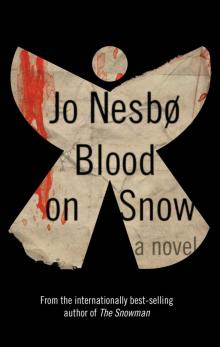 Blood on Snow: A novel
Blood on Snow: A novel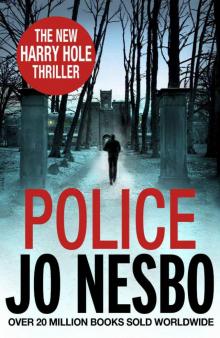 Police: A Harry Hole thriller (Oslo Sequence 8)
Police: A Harry Hole thriller (Oslo Sequence 8) Doctor Proctor's Fart Powder: The Great Gold Robbery
Doctor Proctor's Fart Powder: The Great Gold Robbery Bubble in the Bathtub
Bubble in the Bathtub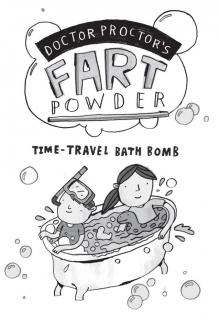 Doctor Proctor's Fart Powder: Time-Travel Bath Bomb
Doctor Proctor's Fart Powder: Time-Travel Bath Bomb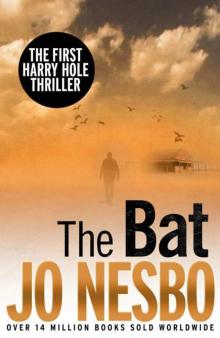 The Bat
The Bat Doctor Proctor's Fart Powder: The End of the World. Maybe.
Doctor Proctor's Fart Powder: The End of the World. Maybe.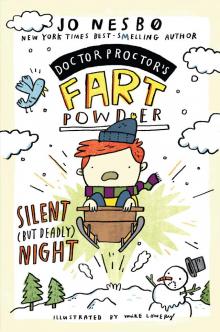 Silent (but Deadly) Night
Silent (but Deadly) Night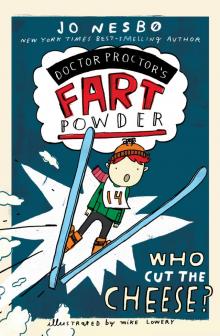 Who Cut the Cheese?
Who Cut the Cheese? Headhunters
Headhunters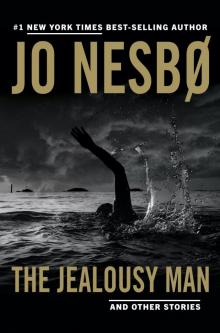 The Jealousy Man and Other Stories
The Jealousy Man and Other Stories Harry Hole Mysteries 3-Book Bundle
Harry Hole Mysteries 3-Book Bundle The Thirst
The Thirst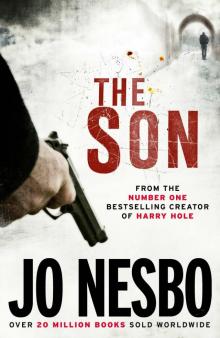 The Son
The Son The Redeemer
The Redeemer The Kingdom
The Kingdom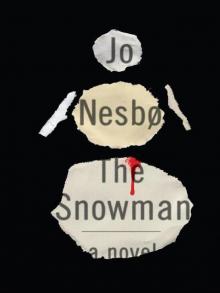 The Snowman
The Snowman The Redbreast
The Redbreast Phantom
Phantom Macbeth
Macbeth The Leopard
The Leopard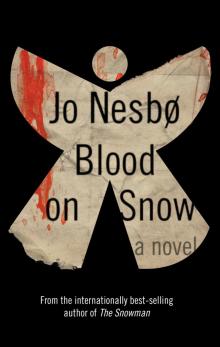 Blood on Snow
Blood on Snow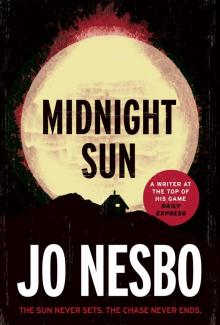 Midnight Sun
Midnight Sun The Redbreast (Harry Hole)
The Redbreast (Harry Hole)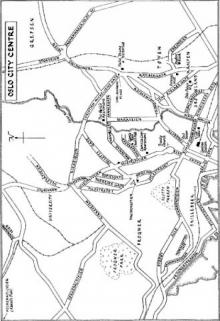 The Devil's Star
The Devil's Star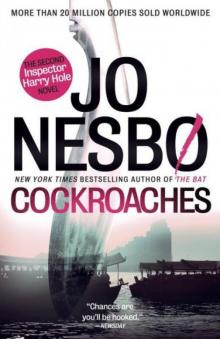 Cockroaches
Cockroaches The Magical Fruit
The Magical Fruit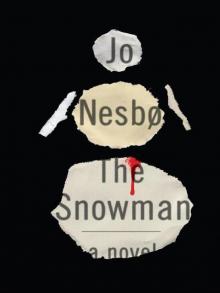 The Snowman: A Harry Hole Novel
The Snowman: A Harry Hole Novel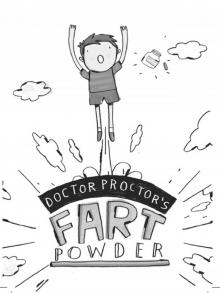 Doctor Proctor's Fart Powder
Doctor Proctor's Fart Powder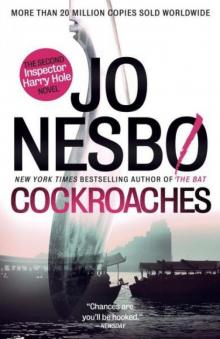 The Cockroaches
The Cockroaches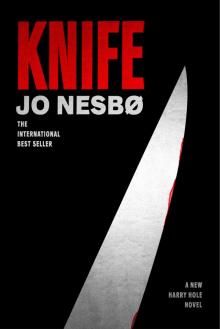 Knife
Knife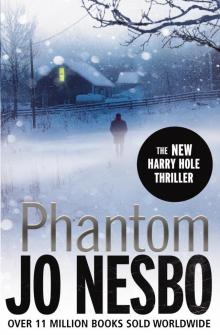 Phantom hh-9
Phantom hh-9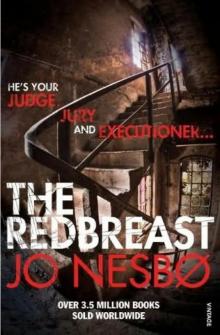 The Redbreast hh-3
The Redbreast hh-3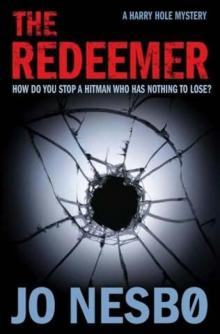 The Redeemer hh-6
The Redeemer hh-6 The Leopard hh-8
The Leopard hh-8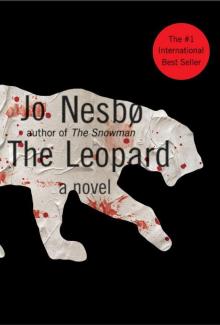 The Leopard: An Inspector Harry Hole Novel
The Leopard: An Inspector Harry Hole Novel The Great Gold Robbery
The Great Gold Robbery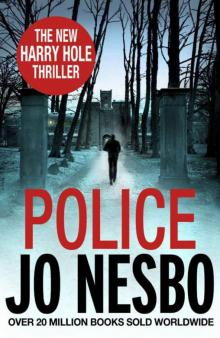 Police hh-10
Police hh-10 The End of the World. Maybe
The End of the World. Maybe The Thirst: Harry Hole 11
The Thirst: Harry Hole 11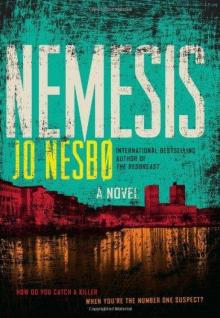 Nemesis - Harry Hole 02
Nemesis - Harry Hole 02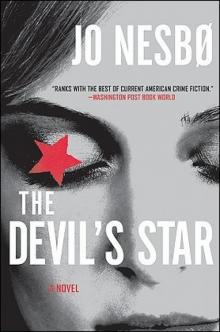 The Devil's star hh-5
The Devil's star hh-5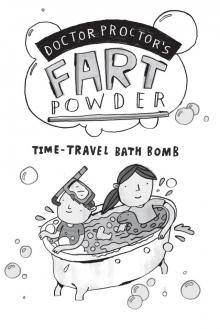 Time-Travel Bath Bomb
Time-Travel Bath Bomb